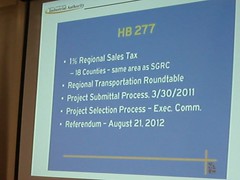We already knew that, but JPI has quantified it: Continue readingYesterday, the Justice Policy Institute (JPI) released a report chronicling the political strategies of private prison companies “working to make money through harsh policies and longer sentences.” The report’s authors note that while the total number of people in prison increased less than 16 percent, the number of people held in private federal and state facilities increased by 120 and 33 percent, correspondingly. Government spending on corrections has soared since 1997 by 72 percent, up to $74 billion in 2007. And the private prison industry has raked in tremendous profits. Last year the two largest private prison companies — Corrections Corporation of America (CCA) and GEO Group — made over $2.9 billion in revenue.
JPI claims the private industry hasn’t merely responded to the nation’s incarceration woes, it has actively sought to create the market conditions (ie. more prisoners) necessary to expand its business.
Tag Archives: VLCIA
Harrisburg defaulted on incinerator bonds
The capital city Pennsylvania is broke and will be skipping this month’s multi-million dollar bond payment.
On Sept. 15, Harrisburg, Pa., was scheduled to make a $3.29 million payment on the bonds it issued to build a trash plant. But, the cash-strapped city doesn’t have the dough.
“The city’s budget is in deficit,” said Chuck Ardo, spokesman for Harrisburg Mayor Linda Thompson. “We’re looking for ways to trim the budget just to keep services going.”
“Now the chickens have come home to roost,” the mayor said in a statement released Wednesday.
You remember, “Officials here decided seven years ago to borrow $125 million to rebuild and expand the city’s enormous trash incinerator….”
 Well, that could never happen here,
could it?
Well, that could never happen here,
could it?
-jsq
Many rural farmers are taking notice of HB 87 —Patrick Davis
Patrick Davis wrote, Rural Republicans in Georgia can’t have it both ways on immigration reform
That last link is to Parolees to replace migrants? Gov. Deal says put probationers in fields by David Rodock in the VDT 15 June 2011, which included: Continue readingWith the law passed and ready for implementation, many rural farmers—especially in Central and South Georgia—are taking notice to the exodus of migrant workers and immigrants which has left some farmers without workers to pick crops.
Many of these same farmers that are hurting economically and losing crops in these rural counties had voted Republican for years.
Valdosta’s Ellis Black who represents parts of Lowndes County as a state representative helped to pass Gov. Nathan Deal’s conservative and punitive agenda and consequently it has contributed to drive an increasing number of migrant workers out of the Peach State.
Trend towards drug legalization
The most famous politician in the world said a few months ago: ‘Drug legalization is an “entirely legitimate topic for debate,”‘ which is a big change from 2009 when Obama laughed off the question.
Newly elected GA gov. Nathan Deal said we can’t afford to lock up non-violent drug offenders. In April Gov. Deal signed a bill to create a panel to overhaul sentencing laws.
 Public opinion
is almost to the majority nationwide for legalization,
according to the Pew Research Center.
Public opinion
is almost to the majority nationwide for legalization,
according to the Pew Research Center.
Private prisons have no business plan, because the majority of their “customers” are in danger of not getting locked up. We don’t need a private prison in Lowndes County, Georgia. Spend that tax money on rehabilitation and education instead.
-jsq
VLCIA gets around to updating its meeting schedule: after the meeting
 Last week the Industrial Authority held a meeting on 14 June 2011
that it called its regularly scheduled meeting.
Except the date for that meeting on VLCIA’s own web page said “June 21, 2011”.
I checked just before going to last week’s meeting.
Last week the Industrial Authority held a meeting on 14 June 2011
that it called its regularly scheduled meeting.
Except the date for that meeting on VLCIA’s own web page said “June 21, 2011”.
I checked just before going to last week’s meeting.
Today VLCIA’s Meeting Schedule web page now says:
June 14, 2011**Well, some of us did note the date of the 14 June meeting because the VDT published that date. However, nobody said at that meeting whether there would be another meeting this week.
**Please note date change**
And we still don’t know Continue reading
The health of the community is way more important than the job —Leigh Touchton
 Leigh Touchton, president of the Valdosta-Lowndes NAACP,
says the local and state NAACP are opposed to the biomass plant
because the community that is most affected is the minority community.
She referred to her previous presentation of a letter from
Dr. Robert D. Bullard.
Leigh Touchton, president of the Valdosta-Lowndes NAACP,
says the local and state NAACP are opposed to the biomass plant
because the community that is most affected is the minority community.
She referred to her previous presentation of a letter from
Dr. Robert D. Bullard.
She also brought up an incident with Brad Lofton and recommended that VLCIA hire an executive director who wouldn’t act like that.
And she said she deals with VSEB all the time:
I’ve taken men through there, I’ve signed them up.She referred to me when she said that, so what I said before is appended after the video.
Here’s the video:
The health of the community is way more important than the job —Leigh Touchton
Regular Meeting, Valdosta-Lowndes County Industrial Authority (VLCIA),
Norman Bennett, Roy Copeland, Tom Call, Mary Gooding, Jerry Jennett chairman,
J. Stephen Gupton attorney, Allan Ricketts Acting Executive Director,
Valdosta, Lowndes County, Georgia, 17 May 2011.
Videos by John S. Quarterman for LAKE, the Lowndes Area Knowledge Exchange.
What I actually recommended regarding VSEB, in response to a specific request from Leigh Touchton for recommendations, was maybe schedule a meeting with Roy Copeland to talk about VSEB and solar job opportunities: Continue reading
Protests about “trillion dollar incarceration machine” crash White House web site
The original post included this:On Friday June 17th, exactly 40 years after President Richard Nixon declared a “War on Drugs,” Internet activists organizing from the social news and activism website, Reddit.com, called the White House en masse to demand an end to the War on Drugs, calling it a “trillion dollar incarceration machine” with a measurable failure to reduce drug use, or harm from drug use.
This is also the last vestige of Nixon’s fight against the civil rights and anti-war movements: And if you look at US incarceration rates, it’s been incredibly effective. . .That’s right, almost six times as many black males per capita get locked up in the U.S. than in South Africa under apartheid. The numbers are even worse for young people and especially young black males, leading to this summary:
- 4,919 Black males per 100,000 population
- 1,717 Latino males per 100,000 of population
- 717 White males per 100,000 of population.
- South Africa under Apartheid (1993) – 851 Black males per 100,000
This isn’t a War on Drugs: It’s a Race War; It’s a War on the youth, likely to protest controversial policies (a war that conveniently takes away those groups voting rights). It’s a war on the American People, paid for by the American people, for the American people’s own good.Yep. Except a majority of the American people don’t want the “war on drugs” any more. It’s time for the laws to change.
Back to the main article: Continue reading
Call Off the Global Drug War —Jimmy Carter
Imagine that! A drug policy meant to address the problem.… has made some courageous and profoundly important recommendations in a report on how to bring more effective control over the illicit drug trade. The commission includes the former presidents or prime ministers of five countries, a former secretary general of the United Nations, human rights leaders, and business and government leaders, including Richard Branson, George P. Shultz and Paul A. Volcker.
The report describes the total failure of the present global antidrug effort, and in particular America’s “war on drugs,” which was declared 40 years ago today. It notes that the global consumption of opiates has increased 34.5 percent, cocaine 27 percent and cannabis 8.5 percent from 1998 to 2008. Its primary recommendations are to substitute treatment for imprisonment for people who use drugs but do no harm to others, and to concentrate more coordinated international effort on combating violent criminal organizations rather than nonviolent, low-level offenders.
These recommendations are compatible with United States drug policy from three decades ago. In a message to Congress in 1977, I said the country should decriminalize the possession of less than an ounce of marijuana, with a full program of treatment for addicts. I also cautioned against filling our prisons with young people who were no threat to society, and summarized by saying: “Penalties against possession of a drug should not be more damaging to an individual than the use of the drug itself.”
How did we go wrong? Continue reading
Ashley Paulk, Corey Hull, and Norman Bennett on T-SPLOST
 Jane Osborn pointed us at
a detailed list of T-SPLOST projects.
Jane Osborn pointed us at
a detailed list of T-SPLOST projects.
T-SPLOST regional executive committee chairman
Ashley Paulk
 gave his opinion on T-SPLOST at a Lowndes County Democratic Party
(LCDP) meeting a few months ago:
He’s against it
because he doesn’t like
a law with a stick in it.
gave his opinion on T-SPLOST at a Lowndes County Democratic Party
(LCDP) meeting a few months ago:
He’s against it
because he doesn’t like
a law with a stick in it.
At the same LCDP meeting, Corey Hull of VLMPO explained T-SPLOST, which LAKE videoed in six parts,
-
 T-SPLOST Explained
T-SPLOST Explained
- T-SPLOST Business plan
- T-SPLOST Project Lists
- T-SPLOST Penalties and LMIG
- T-SPLOST Projects to GDOT
- T-SPLOST referendum in 2012
Before that, Corey Hull explained T-SPLOST to VLCIA,
 and got
a very interesting question about penalties from Norman Bennett.
and got
a very interesting question about penalties from Norman Bennett.
VLMPO held an extended public participation period for T-SPLOST in May. Maybe some of you who went can report back on that.
-jsq
“I’m obviously here on one issue.” —Karen Noll @ VLCIA 14 June 2011
 Karen Noll asked the VLCIA board to put a no-biomass clause
in any purchase agreement regarding the proposed biomass site.
Karen Noll asked the VLCIA board to put a no-biomass clause
in any purchase agreement regarding the proposed biomass site.
She began with these words:
I’m Karen Noll. I hope some of you already have seen my writing and have read my letters to you in the past. I’m obviously here on one issue. I hope that in the future I can be talking to you about other issues. But right now I’m talking to you about biomass. And we celebrated that it was dead and it was gone and now it’s not. Because we really don’t know … what the plan is.By “we” I’m guessing she meant WACE. Some of us who are not members of WACE warned that it ain’t over until it’s over, and it only took a week to discover that VLCIA already knew Sterling Planet wanted to buy the proposed biomass site.
Karen Noll made a pitch based partly on saving taxpayer money. In addressing health concerns, she handed the board a letter from local doctor Craig Bishop. She handed the board a petition with “at least 700 signatures” and she said for each signature there was probably at least one more that didn’t sign. Some of what she said appeared to be drawn from a letter that is appended in this post after the video.
Here’s Part 1 of 2: Continue reading